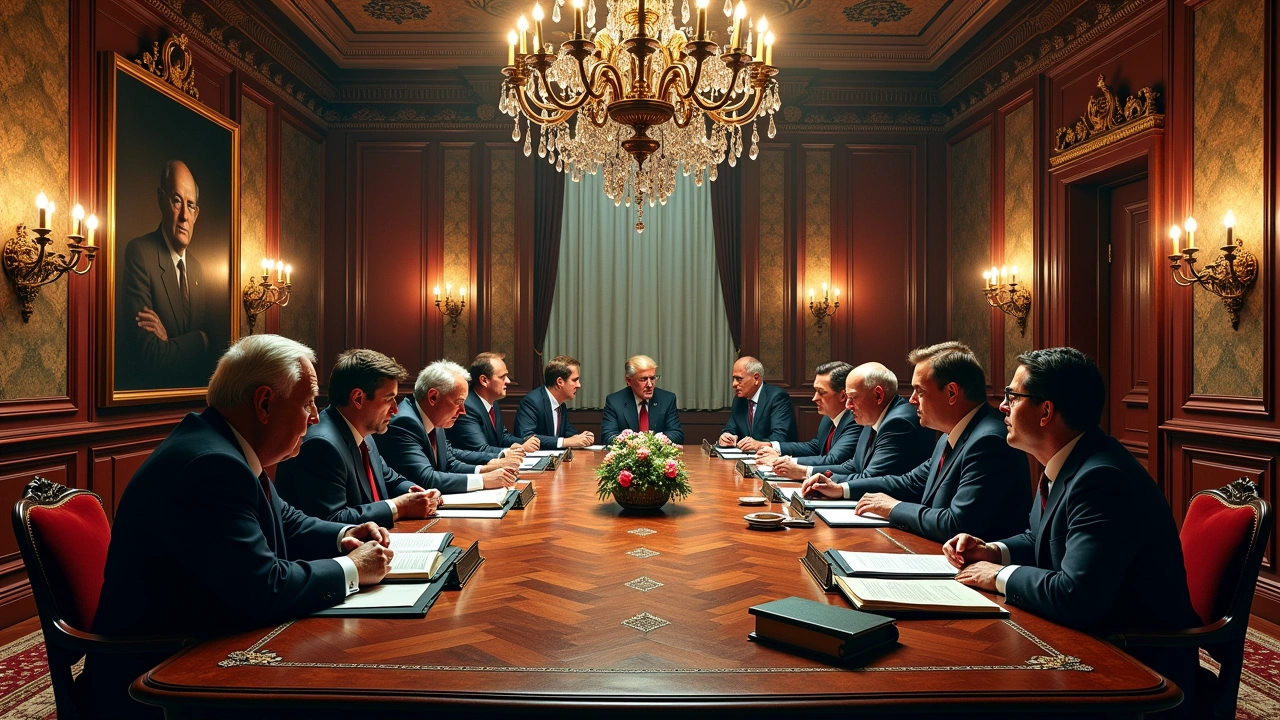The Web of Global Influence: Philanthropists, Think Tanks, and the Quest for a New World Order

In the complex landscape of global politics and economics, a network of influential organizations and individuals is shaping the future of our world. This post delves into the interconnected web of power that includes the Club of Rome, the Bilderberg Group, the World Economic Forum (WEF), major philanthropists, and financial giants like BlackRock and Vanguard. Let’s explore how these entities are influencing global agendas and what it means for our society.
The Club of Rome: Visionaries or Global Engineers?
Founded in 1968, the Club of Rome is a think tank that has been at the forefront of global sustainability discussions. Their influential report, “The Limits to Growth,” warned of potential civilizational collapse due to resource depletion and environmental degradation. The Club of Rome continues to advocate for coordinated global action, as seen in their involvement with initiatives like the ChangeNOW 2025 conference and the “New Generational Contract.” While their goals are noble, critics question the centralization of power and the potential for a “one-size-fits-all” approach to global challenges ^1,2,3^.
Philanthropists: Shapers of the New World Order
Philanthropists like George Soros and Bill Gates wield enormous influence through their foundations, funding global initiatives that address health, education, and climate change. Soros, in particular, has been a vocal advocate for global cooperation in combating pandemics and climate change, viewing these issues as opportunities for a “New World Order.” However, their vast resources and global reach have raised concerns about accountability and the potential for philanthropic activities to serve the interests of the funders rather than the intended beneficiaries ^4,5,6^.
The Bilderberg Group: Shadows of Influence
The Bilderberg Group, known for its secretive annual meetings, brings together leaders from politics, business, and academia. While the group’s discussions are confidential, their influence is evident in the global policies and narratives that emerge. Critics argue that the Bilderberg Group represents a form of global governance that operates behind closed doors, shaping decisions that impact millions without public scrutiny ^7,8^.
The World Economic Forum: Resetting the Global Economy
The WEF, with its annual Davos meeting, is a platform where global leaders discuss economic and social issues. Their “Great Reset” initiative aims to reshape the global economy in response to crises like the pandemic and climate change. While the WEF advocates for a more sustainable and equitable world, critics see the “Great Reset” as a move towards a centralized global system that could limit national sovereignty and individual freedoms ^9,10^.
BlackRock and Vanguard: The Architects of Global Finance
As two of the world’s largest asset management companies, BlackRock and Vanguard hold significant stakes in numerous corporations globally. Their investment decisions, increasingly focused on sustainability and ESG criteria, can shape industries and economies. This financial influence raises questions about the concentration of power and the potential for these companies to drive a more centralized and controlled global economic model ^11,12^.
Central Steered Autarky: A New Global Order?
The interconnected efforts of these organizations and individuals suggest a move towards a centralized global system, often referred to as a “central steered autarky.” This system, driven by the need for coordinated responses to global challenges, could lead to a more controlled and self-sufficient world. However, it also raises concerns about democracy, national sovereignty, and the diversity of local and national communities ^13,14^.
Conclusion: Navigating the Web of Global Influence
As we navigate the complex web of global influence, it is essential to engage in critical discussions about the role of these organizations and individuals in shaping our world. While their initiatives often address pressing global issues, the concentration of power and the potential for centralized control warrant careful consideration. By fostering transparency, accountability, and inclusive dialogue, we can ensure that the future of our planet is shaped by the diverse voices and needs of all its inhabitants.
References:
- Club of Rome. (2023). About Us. Retrieved from Club of Rome website.
- Meadows, D. H., Meadows, D. L., Randers, J., & Behrens, W. W. (1972). The Limits to Growth. Universe Books.
- ChangeNOW. (2025). ChangeNOW 2025 Conference. Retrieved from ChangeNOW website.
- Soros, G. (2020). In Defense of Open Society. PublicAffairs.
- Gates, B. (2021). How to Avoid a Climate Disaster. Knopf.
- Open Society Foundations. (2023). Our Work. Retrieved from Open Society Foundations website.
- Bilderberg Meetings. (2023). About the Bilderberg Meeting. Retrieved from Bilderberg Meetings website.
- Luongo, C. (2020). The Bilderberg Group: A Shadowy Influence on Global Politics. Global Research.
- World Economic Forum. (2023). The Great Reset. Retrieved from World Economic Forum website.
- Schwab, K. (2020). COVID-19: The Great Reset. Crown Business.
- BlackRock. (2023). About BlackRock. Retrieved from BlackRock website.
- Vanguard. (2023). About Vanguard. Retrieved from Vanguard website.
- Stiglitz, J. E. (2019). People, Power, and Profits: Progressive Capitalism for an Age of Discontent. W. W. Norton & Company.
- Klein, N. (2020). On Fire: The (Burning) Case for a Green New Deal. Simon & Schuster.
This post provides a comprehensive overview of the influential organizations and individuals shaping global agendas, encouraging readers to think critically about the implications of centralized global governance.
Related Posts
- RFK Jr. on the WEF: When a Presidential Candidate Calls Out the 'Billionaires' Boys Club'
- Parallels: Pandemic and Tension Case
- Revealing the EU Pandemic Exercise 'Blue Orchid': What We Know and What Remains Hidden
- The Julia Ruhs Case: Systematic Discrediting or Justified Criticism?
- What Drags Germany into the Abyss and Why Information Distortion Hinders Social Progress